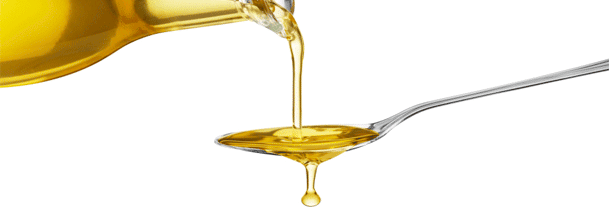What Hidden Factors Could Be Harming Your Metabolism?
Fat composition in the Australian diet has changed considerably over the last 80 to 90 years. Back in the 1920s Australians were eating predominantly saturated fats from butter and animal fats. Keep in mind that the rates of our modern diseases were low. Since then, there has been a gradual rise in the consumption of legume, grain, nuts, and seed oils from mass farming industries. These oils are high in omega 6 polyunsaturated fats and are the major reason behind how these fats damage metabolism and are partially why Australia has seen a surge in metabolic disorders such as diabetes and obesity.
Fats come in three different categories: saturated fats, monounsaturated fats, and polyunsaturated fats. The polyunsaturated fats are broken down into two further categories. They are omega 3s and omega 6s- they are what we call essential fatty acids or EFAs. Polyunsaturated fats are unstable and can be damaged by heat, oxygen, and light. The two EFA categories are highly active components of the human body’s inflammatory responses and regulate many metabolic functions. These include:
Omega 3
- Lower blood triglycerides
- Lower total cholesterol levels
- Lower blood pressure
- Reduces tendency for abnormal blood clotting
- Assist in regulating blood sugar
- Increase learning ability and attention
- Increase fat oxidation or burning
- Reduce pain and inflammation in all tissues, including joints
- Improves mood
- Increases fertility and is pro-ovulatory
Omega 6
- Lowers total cholesterol
- Increase blood clotting tendency
- Increase pain and inflammation in all tissues
- Increases aggression and mood disorders
- Increases fat oxidation or burning but less than omega 3s
- Increases blood pressure
- Affects fertility negatively
In the current dietary pattern in Australia we are encouraged to eat abundant cereal grains, legumes, and vegetable oils. This sets up a terrible balance between these two EFAs and encourages the negative effects of omega 6 oils. Omega 6 oils are required by the body and have many beneficial effects but in excess they wreck havoc on the metabolism.
The stability of polyunsaturated fats, as mentioned before, is low so this then raises another issue with vegetable oil consumption. With the influx of vegetable oils and the recommendations of Heart Foundations around the world to lower cholesterol and saturated fat intake, we were encouraged to cook with vegetable oils. When you heat vegetable oils to high temperatures after exposing them to light and air during processing, they become oxidized or damaged. This oxidated or damaged food then is consumed and starts to harm the body. Many metabolic structures such as muscle cells, heart muscle, and blood vessels then begin to damage- therefore lowering the human body’s ability to burn calories and carry out efficient metabolic tasks.
Where in the diet do you find these vegetables oils? They are found in most confectionary, baked goods, margarines, deep fried foods, snack foods, frozen meals, and tinned foods. Almost every food manufactured and has a label. Certain oils that we are encouraged to cook with as Australians are canola, soy, peanut, margarines, safflower, cottonseed, corn, and rice bran oil. These oils are poorly manufactured and therefore damaged. They are also high in omega 6, unstable, and unsuitable to cook with. One simple rule is to avoid these foods at all costs and read labels.
To recap on what vegetable oil consumption does to reduce your metabolism and therefore weight loss or disease prevention goals:
-
They damage cellular and tissue structures that produce energy and therefore burn fats and carbohydrates. Reduce how many calories you burn each day. This damage also leads to increased likelihood of diabetes, cardiovascular disease, certain cancers and dementia.
-
The imbalance they create with excess omega 6 ratio leads to poor blood sugar regulation, poor cholesterol or blood lipids, higher blood pressure, supports fat gain, reduces fat burning or oxidation and makes it more difficult to exercise injury free.
All in all contribute to weight gain and increased disease prevalence.
To explore how to avoid these fats and to find out what to use instead, get in contact with one of our degree trained naturopaths at Natmed. Meal plans that are designed to balance these fats are formulated to your needs to increase metabolic function and achieve your goals.

